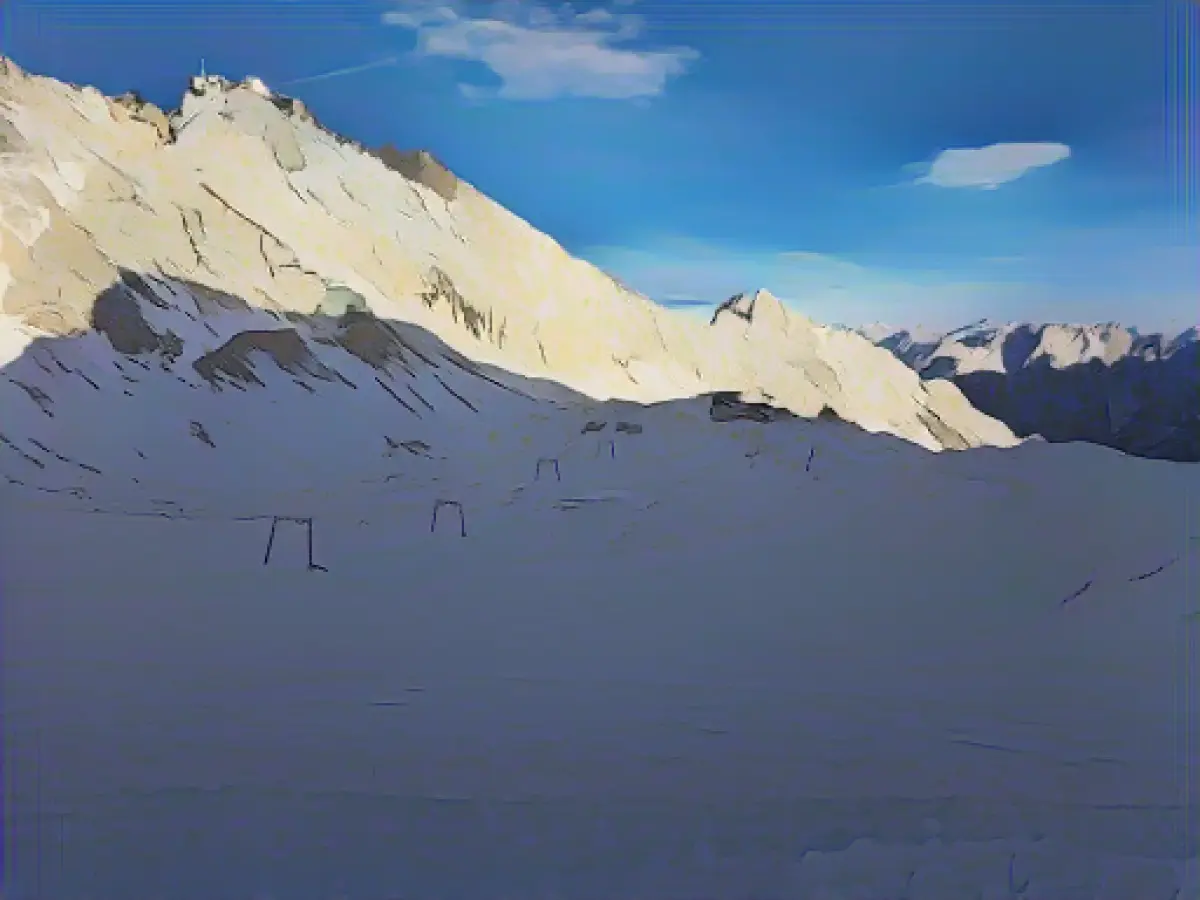Skiing more expensive: hoping for snow and a relaxed season
You can already see it from afar: The first snow has fallen on the mountains. The winter sports resorts in Bavaria and other parts of Germany are gearing up for the season. The Zugspitze is expected to be the first ski resort in Germany to open on December 1. With a bit of luck, skiers will then be able to make their turns in the fresh powder. The other resorts also plan to open in December.
One thing is certain: skiing fun will be more expensive again. A survey of ski resorts conducted by Bayerischer Rundfunk in October revealed that prices are likely to rise by between four and ten percent, depending on the ski resort. Other media also reported on the higher prices. In Austria, prices are also rising by up to ten percent.
Even if inflation is slowly easing, the increased prices, especially for energy and personnel, are also having an impact on the lifts, according to the operators.
Furthermore, the signs are not bad for this season. If it stays cold, the snow cannons could start up in the middle of the month. After two corona years and a winter dominated by the energy crisis, it looks like a normal winter again for the first time, says Verena Tanzer, spokeswoman for the Bayerische Zugspitzbahn.
The snow groomers are already out and about on the 2962-metre-high Zugspitze, Germany's highest mountain. Last year's snow, which has accumulated in hollows, is being spread on the slopes. "A lot of snow has survived the summer. This is a very good basis for our slopes on the Zugspitzplatt," said Tanzer.
A day ticket on the Zugspitze and in the Garmisch Classic ski area costs 62 euros, five euros more than last season. The ski pass in the border ski region of Oberstdorf and Kleinwalsertal is similarly expensive at 62.90 euros (2022/2023: 57.50 euros). In Austria, with its many higher and more extensive areas, prices are sometimes over 70 euros.
The Alpen-Plus ski areas Sudelfeld and Brauneck remain just under the 50-euro mark at 49.50 euros. At Jenner in Berchtesgaden, the day ticket will cost 42 euros, as well as at Großer Arber (previous season: 39 euros).
It is important that skiing remains affordable for families, says Gudrun Hiemerer, spokesperson for the Association of German Cable Cars and T-bar Lifts. That is why there will continue to be discounts for children, young people and families, "It is important to us to get children out on the snow."
Climate change and sustainability remain issues for the lift operators. Only two percent of a winter sports enthusiast's carbon footprint is caused by the activities in the ski resort itself, whereas 78 percent is caused by the journey to the resort and 20 percent by the overnight stay, writes the VDS, citing studies. "The shorter the journey, the better the carbon footprint," says the association, promoting winter sports at home. In addition, many skiing and hiking areas are well connected to public transport.
Klaus Stöttner, President of the Upper Bavaria and Munich Tourism Association, also advocates winter sports in the local mountains. "The most sustainable vacation is when it is taken in the region." In addition, the money stays in the country. Without snowmaking, all of this would be in danger, warns Stöttner. "Then people would go to Austria, South Tyrol, France or Switzerland. Or they fly to the Caribbean." Many guests have already changed their minds and are focusing more on touring and hiking - and using public transport to get there. Winter tourism accounts for 40 percent in Bavaria, 60 percent in summer.
Environmentalists, on the other hand, have long questioned the future of winter sports in Bavaria. They particularly criticize the use of snow cannons. Last season, in view of the energy crisis, they called for artificial snow to be completely abandoned. Critics of snowmaking, including the German Alpine Association, continue to demand that the tax-funded subsidy for snow cannons, which has been extended again in Bavaria, be abandoned.
After all, the lift operators saved on snowmaking in the previous season and dispensed with the heating of chairlift seats and radiant heaters on the terraces of the snack huts.
This year, guests in the Garmisch Classic ski area, for example, will once again be able to ski up the mountain in warm seats. However, snowmaking will strictly follow a step-by-step plan, says spokeswoman Tanzer. "We want to continue to be economical with energy and water."
The rise in prices is affecting not only German ski resorts but also those in Austria, potentially increasing the cost of Alpine skiing for many tourists. Despite the increased expenses, the president of the Upper Bavaria and Munich Tourism Association advocates for enjoying winter sports in local mountains, which he believes is the most sustainable vacation option.
Source: www.dpa.com








